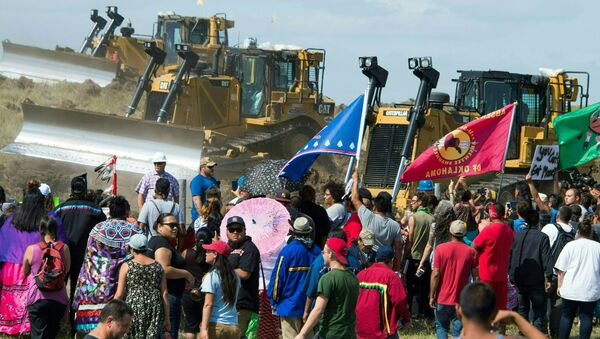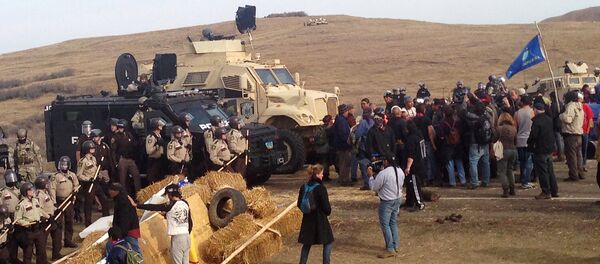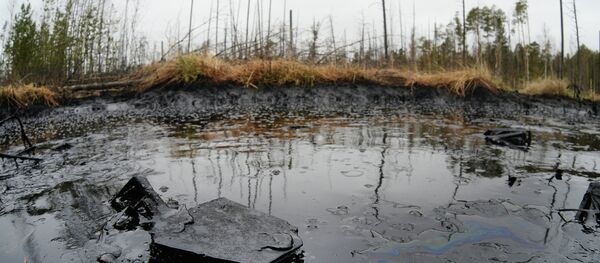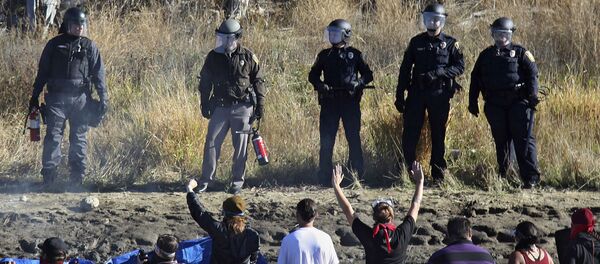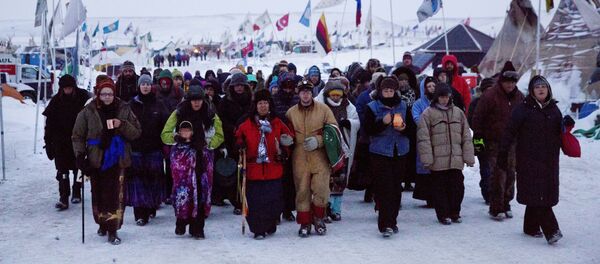WASHINGTON (Sputnik) — The $3.7 billion Dakota Access Pipeline would transport up to 570,000 barrels per day of domestically-produced light crude oil from North Dakota through South Dakota and Iowa into Illinois, according to Texas-based Energy Transfer Partners (ETP). ETP claims they have met all government legal and safety regulations to build the pipeline.
Pipeline Supporters
Bishop argued that the route for the oil pipeline has been approved through a permitting process that followed established federal regulations.
In early December, the US Army Corps of Engineers denied an easement that halted the construction of the final phase of the Dakota Access Pipeline, citing environmental concerns.
The delay was the latest in a series of overt and transparent political actions by the Obama administration, which abandoned the rule of law to curry favor with a narrow and extreme political constituency, the ETP stated.
Republican congressman Lamar Smith said in a release that the US Environmental Protection Agency (EPA) must change the way it operates after it reversed its initial finding that the fuel-drilling technique fracking doesn’t have a broad impact on drinking water.
"It’s no surprise that right before a shift in administration the EPA conveniently changes its mind on the impact of hydraulic fracturing on water supplies," Smith said.
Smith, chairman of the House of Representatives’ Science, Space and Technology Committee added, "I look forward to working with the next administration to enact critical reforms to put EPA back on course in pursuing transparency and sound science."
Environmental Concerns
The Standing Rock Sioux Tribe led the opposition, claiming the controversial pipeline infringed on sacred land including burial sites and vital drinking water resources such as the Missouri River.
On December 4, the Army Corps elected not to issue a permit for drilling beneath Lake Oahe, a reservoir that serves as a major source for water for the Standing Rock Sioux, adding that alternative routes for the pipeline would be explored. The decision was taken after thousands of activists protested pipeline construction.
The environmental advocacy group claimed that Energy Transfer Partners specifically has been responsible for 29 pipeline safety incidents since 2006, resulting in nearly 10,000 barrels of hazardous liquids spilled.
In addition, the Environmental Protection Agency (EPA) issued a report saying it found scientific evidence backing claims that fracking pollutes US drinking-water supplies but can’t make a broader safety assessment about the fuel-drilling technique.
As a result of the report, the EPA asserted that it can "inform decisions" by policymakers in federal, state, local and Native American tribal governments, as well as communities "to protect drinking water resources now and in the future."
Protests and Crackdown
Nearly 4,500 "water protectors" were present at camps near the construction site and on weekends the number increased to 8,000. More than 300 tribes took part in the anti-pipeline protests.
Protesters and law enforcement engaged in a long series of clashes. In late November, Morton County Sheriff’s Department head Kyle Kirchmeier said protests against the North Dakota Access pipeline became increasingly aggressive as tensions flared. He added that participants used Coleman propane canisters rigged as explosives in addition to throwing burning logs and rocks at authorities.
The Morton County Sheriff’s Department reported in December that since August 10, law enforcement arrested 571 individuals, which only 6.8 percent of them were from North Dakota. The highest percentage of arrests were from California at just over 15 percent, followed by South Dakota at 11.21 percent and Washington at 7.78 percent, the department noted in a release.
Of the total arrested, 41 percent were Native Americans, the release added.
Law enforcement received widespread backlash for its use of excessive force against protesters. US Democratic Senator Cory Booker called on the Justice Department to send federal monitors to the Standing Rock Sioux reservation for the violence being reported amid protests
The American Civil Liberties Union (ACLU) called on the Justice Department to probe into the militarized response to peaceful demonstrations and UN officials also expressed concerns.
"The excessive use of State security apparatus to suppress protest against corporate activities that are alleged to violate human rights is wrong and contrary to the UN Guiding Principles on Business and Human Rights," UN Special Rapporteur on the rights to freedom of peaceful assembly and of association, Maina Kiai, said in a press release on November 15.
The ACLU said US federal authorities should prohibit the use of weapons, including armored vehicles, beanbag bullets, and pepper spray, by law enforcement officers during riots.
After the Army Corps halted the construction of the final phase of the Dakota Access Pipeline, Sioux tribe chairman Dave Archambault advised protesters opposing construction to return home now that the battle over the controversial project has shifted to the courts.
However, US President Barack Obama’s inaction regarding protests against the pipeline dismayed members of Native American tribes affected by the project, a tribal official told Sputnik.
One official with the Standing Rock Medic and Healer Council stated in late November that because of the Army Corps’ lack of a response, sacred sites had been destroyed and have been disturbed by Dakota Access.
Prospects Under Trump
The choices US President-elect Donald Trump made for his Cabinet threaten to return the United States to an era of dirty energy and big oil, Senator Edward Markey said in a statement.
Environmental groups have sharply criticized the choice, citing multistate lawsuits involving Pruitt against EPA policies aimed at countering the impact of climate change and enforcing federal clean-air and clean-water laws.
Markey said all four choices threaten the US economy, national security and public health.
Trump transition spokesman Jason Miller told reporters that the president-elect will wait until he is in office to review the Army Corps’ decision to deny Dakota Access Pipeline permission to finish construction.

